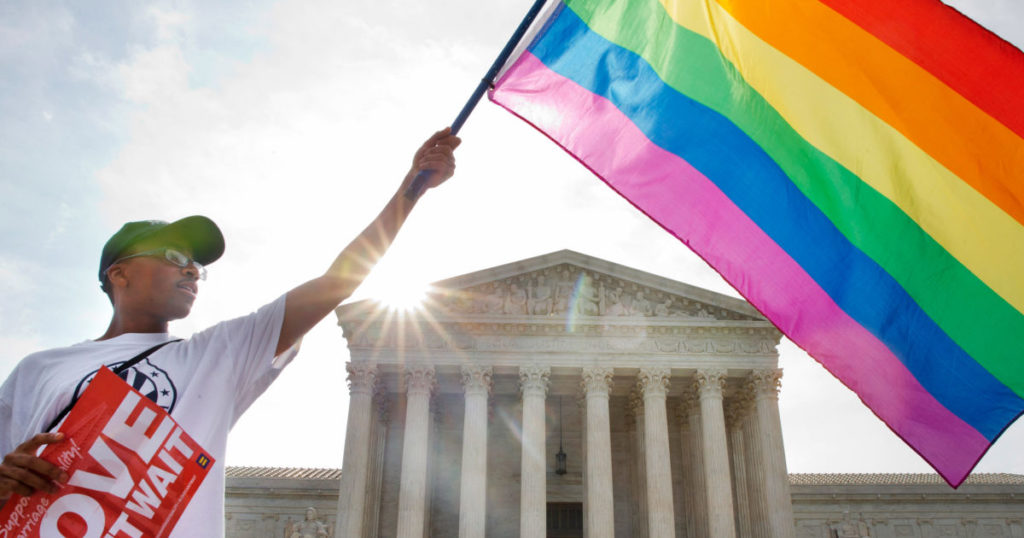An estimated 137,000 LGBTQ+ adults live in South Carolina. Most of us know somebody who is in a same-sex relationship, whether it be a friend, family member, or neighbor. For many, it is hard to imagine these couples suddenly having their marriage invalidated, or being unable to marry as they had planned. However, it was not very long ago that same-sex marriage was illegal in many states in the US, including in South Carolina. Now, with the impending confirmation of a new US Supreme Court justice, LGBTQ+ rights may again be at risk in our state.
In 2015, the US Supreme Court ruled in the landmark case Obergefell v. Hodges that state-level bans on same-sex marriage were unconstitutional, effectively legalizing same-sex marriage throughout the US, in a close 5-4 ruling. Prior to this, South Carolina was one of several states embroiled in the conflicts between several lower courts over this issue, with a federal court ruling against South Carolina’s existing ban on same-sex marriage in November 2014.

Before these rulings, same-sex marriage had been banned in South Carolina by a statute passed in 1996 by the State House of Representatives that defined marriage as between one man and one woman. The state legislature took this even further in 2007 and passed Amendment 1, a state constitutional amendment that banned not only same-sex marriages but also any domestic partnerships. This meant that people in same-sex relationships were not allowed the privileges that come with marriage, including hospital visitation rights, the ability to open joint bank accounts and file taxes jointly, the extension of health insurance benefits to one’s spouse, and the ability to inherit a spouse’s property and Social Security benefits.
Earlier this month, SCOTUS justices Clarence Thomas and Samuel Alito criticized the 2015 Obergefell v. Hodges ruling, stating “…the court has created a problem that only it can fix.” They expressed their opposition to a federal ruling regarding same-sex marriages, indicating the issue should be resolved with state legislation. The current Supreme Court nominee, Amy Coney Barrett, has not conveyed that she will uphold Obergefell, and indeed has indicated her belief that marriage should be between one man and one woman when she signed a letter in 2015 written to the “Synod Fathers from Catholic Women” stating as much. She has described herself as a Constitutionalist similar to the late Justice Antonin Scalia, who also dissented on the Obergefell ruling.
Following Barrett’s impending confirmation to the Supreme Court, there is a very real possibility that Obergefell v. Hodges could be overturned, resulting in state laws reverting to their pre-existing legislation prior to 2014-2015. In South Carolina, this could mean reverting to same-sex marriage being illegal, unless the state legislature decides to change Amendment 1 of the State Constitution.
I pledge my support for the LGBTQ+ community, and if elected, I will fight for maintaining the legality of same-sex marriage in our state, as well as for the passage of non-discrimination protections for LGBTQ+ people. I consider marriage equality to be a civil right, and those in same-sex relationships should not have their rights taken away.
Join me in this fight! Your vote matters!
Sources:
https://www.npr.org/2020/10/05/920416357/justices-thomas-alito-blast-supreme-court-decision-on-gay-marriage-rights
https://web.archive.org/web/20090320011753/http://www.scstatehouse.gov/sess116_2005-2006/sj05/20050413.pdf
https://www.supremecourt.gov/orders/courtorders/100520zor_3204.pdf
https://williamsinstitute.law.ucla.edu/publications/lgbt-discrimination-sc/
